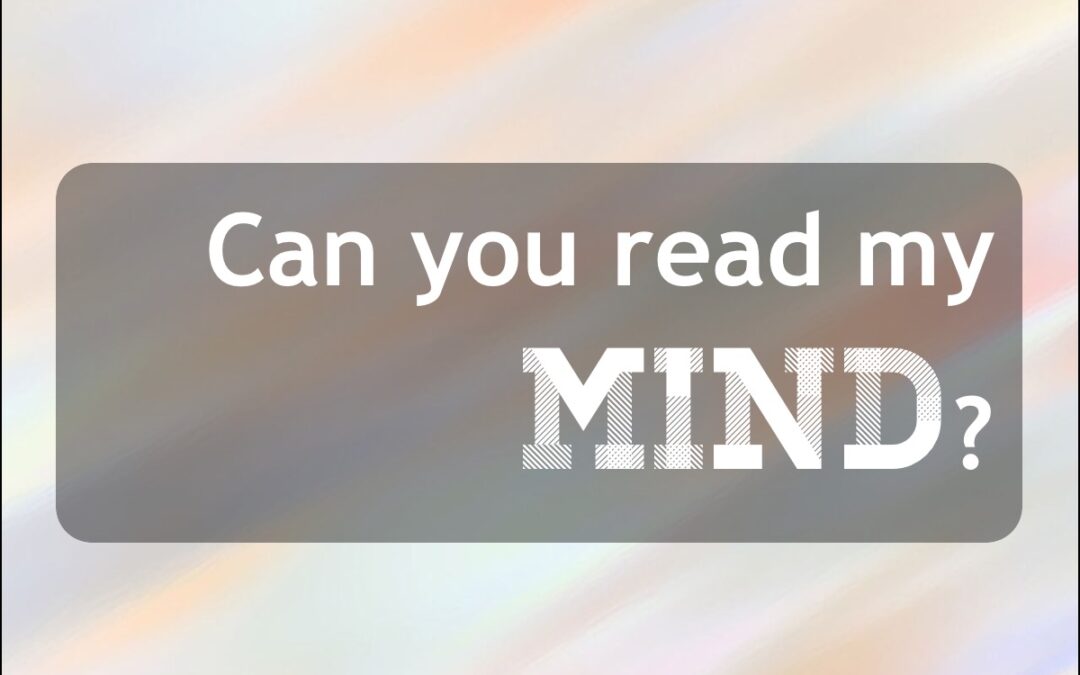Working for a counselling charity is a diverse job- one moment I might be answering the phone, the next minute I’m planning a fundraising day, or by the evening I might be networking at a charity event. It’s fair to say that through this diversity I’ve had the opportunity to speak to a lot of people about the subject of counselling this year. Surprisingly, one of the things that stands out to me the most is a sense that many people still feel confused about what counselling actually is, or what really goes on in the therapy room.
I remember back when I was at university, people would ask with enthusiasm, “what are you studying?” Each time I’d respond with the interesting yet apparently terrifying word, ‘psychology’. This usually prompted a whole host of, ‘I bet you can read my mind?’ jokes, followed up with a translation that I was of course a mind reader who could detect their deepest darkest secrets simply based on whether they order a vodka and coke or a glass of pinot! Unfortunately, I still often have to explain that telepathy is not on my CV and that fantasy guessing is not one of my party tricks.
Yet all anecdotes aside, it seems that the subject of counselling can still cause confusion and misunderstanding for many. With so much stigma still attached to counselling and mental health, it’s no wonder we’re left asking what it’s actually all about? To shed some light on the subject and to hopefully bring a little clarity, here is what we’d describe as the 5 most common myths in counselling:
- I’ve tried it before- it didn’t work
It’s true that counselling can often take time. Sometimes this means trying counselling for a few sessions before making a decision as to whether to continue. Other times it may be that you’re simply not connecting with that counsellor, in which case, it may be worth seeing somebody different. Remember that different counsellors have different styles too. It’s worth checking out if your counsellor specialises in one specific type of counselling, such as psychodynamic, person centred or CBT, or if they use an integrative approach.
- I don’t want somebody to read me
To me, ‘reading’ somebody goes hand in hand with judging them and this is totally not what counselling is about. An intrinsic part of counselling ethics is that a counsellor does not assume they ever know exactly what the client is thinking or feeling, nor do they judge them based on what they say or do. Remember that in a professional counselling setting you can choose to tell a counsellor as much or as little as you feel comfortable with. Ultimately a professional counselling setting will create a safe place for you to talk at your own pace and absolutely not somewhere you’ll be ‘read’.
- It’s too expensive
Yes, counselling can often be expensive and usually NHS waiting lists are extremely long. If you’re looking to go private, some counsellors may offer concessionary rates and it’s worth noting that their prices do vary. However, Westmeria Counselling Service offers professional counselling for up to 24 sessions on a donation only basis in the Bromley borough. This gives clients the opportunity to decide how much they can afford. If you’re not sure if our service is available to you give us a call, otherwise it’s worth checking out if there’s a similar service in your area.
- I’ll just be asked, ‘how do you feel about that?’
This may be the generic phrase you’re used to hearing when it comes to therapy but it certainly isn’t the only thing a counsellor will ask. Although counselling naturally looks at emotions, a question like this may be totally irrelevant to your current circumstance. A good counsellor will work with you on an individual basis and may use a wide variety of techniques.
- My problems aren’t severe enough
I find that a lot of people who enquire about counselling worry that they are not depressed, stressed or even traumatised enough to seek counselling. Especially because we are a charity, people will often say that they’re worried they’re taking up our time when somebody who ‘really needs help’ should have their space. Yes to a degree there are different levels of mental and emotional problems; but if you feel that you may benefit from counselling you’re probably right and this is valid enough. I believe that our mental health should be a priority and by no means should we devalue our own emotions or problems by comparing them to someone else. Again, this is the reason why we are a generic service, meaning that what you’re struggling with does not have to fit a specific category in order to seek help.
If you’d like to get in touch with Westmeria Counselling Services please contact us on 020 8467 9693 or enquiries@westmeriacounselling.co.uk. We’re always looking for people who are willing to share their story in relation to counselling and mental health or to volunteer for the charity, if you’re interested please email scarlett@westmeriacounselling.co.uk

